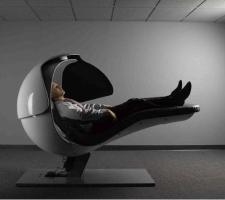September 24, 2014
Flexible working celebrated, as Top Employers for Working Families revealed
 Deloitte, KPMG and Barclays are among the companies recognised for their work-life balance policies in the annual list of the Top Employers for Working Families. The Top Employers for Working Families Benchmark is designed to encourage employers to focus on their flexible working and work-life integration practices, and how they measure up against other organisations. Brand Learning, CiC Employee Assistance and Digital Mums were included in an alternative benchmark provided to smaller organisations to help them evaluate and develop their own work-life thinking. The top scoring employers were named by work-life balance group Working Families as part of series of events to mark National Work-Life Week, which today features ‘Go home on time day.’ This is held to help encourage people to leave their workplace on time and help redress the thirty five per cent of parents who – in a poll by Working Families, said that their work affects their home life in a negative way. (more…)
Deloitte, KPMG and Barclays are among the companies recognised for their work-life balance policies in the annual list of the Top Employers for Working Families. The Top Employers for Working Families Benchmark is designed to encourage employers to focus on their flexible working and work-life integration practices, and how they measure up against other organisations. Brand Learning, CiC Employee Assistance and Digital Mums were included in an alternative benchmark provided to smaller organisations to help them evaluate and develop their own work-life thinking. The top scoring employers were named by work-life balance group Working Families as part of series of events to mark National Work-Life Week, which today features ‘Go home on time day.’ This is held to help encourage people to leave their workplace on time and help redress the thirty five per cent of parents who – in a poll by Working Families, said that their work affects their home life in a negative way. (more…)












 At the end of July, the UK Government introduced new legislation that allowed any employee with more than six months in a job to apply to their employer for some form of flexible working arrangements. Now, research from Sage claims that a third of small businesses are ignoring the legislation, a fact which might be interpreted as suggesting that the UK’s SMEs are not so keen on the idea. What other data suggests, however, is that they’re probably more likely to offer flexible working than larger firms. This can only mean that it’s the legislation that’s the problem, not the practice. Leaving aside the ten percent of SMEs who the Sage report claimed were unaware of the new rules, this still leaves a large number of smaller businesses open to litigation and industrial tribunals. But, as the Federation of Small Businesses warned ahead of the new law’s introduction, the right to request was always likely to lead to headaches for business owners anyway.
At the end of July, the UK Government introduced new legislation that allowed any employee with more than six months in a job to apply to their employer for some form of flexible working arrangements. Now, research from Sage claims that a third of small businesses are ignoring the legislation, a fact which might be interpreted as suggesting that the UK’s SMEs are not so keen on the idea. What other data suggests, however, is that they’re probably more likely to offer flexible working than larger firms. This can only mean that it’s the legislation that’s the problem, not the practice. Leaving aside the ten percent of SMEs who the Sage report claimed were unaware of the new rules, this still leaves a large number of smaller businesses open to litigation and industrial tribunals. But, as the Federation of Small Businesses warned ahead of the new law’s introduction, the right to request was always likely to lead to headaches for business owners anyway.







September 25, 2014
Why a more flexible approach to where and when we work is long overdue
by Sara Bean • Comment, Facilities management, Flexible working, News